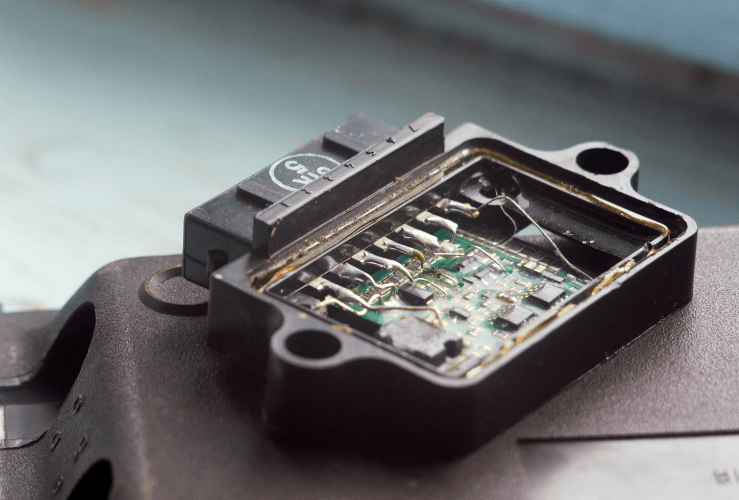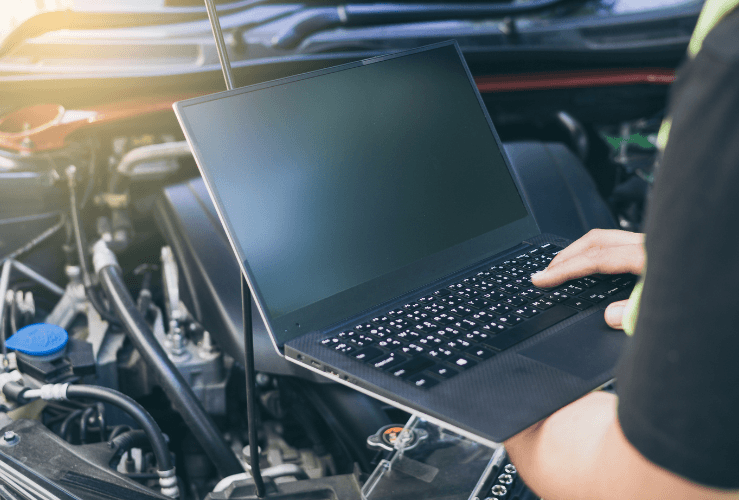Many motorists don’t become familiar with the term ‘ECU’ until theirs develops a fault.
Read our engine control unit guide for all you need to know.

What is an engine control module/unit?
An ECU - 'engine control unit' - is a critical computer that helps manage things like engine performance and fuel consumption in your car through the ignition and fuel injection systems.
If your car's engine is the 'heart' of your vehicle, then the ECU is the 'brain'.
'ECU' may be used to refer to a vehicle's main computer, but manufacturers and technicians may use it as a catch-all term for related 'modules' - smaller computers that control specific aspects of the vehicle, such as the FCM - 'fuel control module'.
ECU car meaning: What does an ECU do?
Upon hearing your mechanic say the words, ‘Your Ecu is faulty’, your next question may well be: ‘What does a ECU do in a car?’
Essentially, your car's ECU takes in information from various sensors, providing data on things like:
- Airflow
- Coolant temperature
- Throttle position
- Manifold pressure
- Engine speed
This information lets the ECU know how fast the engine is turning, the demand/load on the engine from the throttle, manifold pressure, coolant and air temperature.
This data is then put through a specific fuel and ignition ‘table’, which tells the ECU how much fuel and how much ignition timing the tuner (the person programming the ECU) wants the engine to have.
The processed information is then sent back out of the ECU to the fuel injectors and the ignition system. This directly impacts the air-to-fuel ratio (AFR) and the timing of the ignition coil.

Look-up table or map
Key to the functioning of the ECU is the 3D look-up table, or map.
The technician programming the ECU can choose from many tables, depending on what kind of performance is required from the engine.
The table features data points on RPM and throttle position and can be adjusted by the tuner.
Where is the ECU located?
The ECU is normally located near the engine, usually accessible via the glovebox or behind the dashboard.
You can check your owner’s manual to find out its exact position – although an ECU technician will be able to locate it easily enough.
What happens when an ECU fails?
If your car's ECU develops a fault, you may experience:
- Poor engine performance: rough idling, stalling, or problems starting the engine.
- Reduced fuel efficiency: this happens when fuel injection and air-fuel mixture are sub-optimal due to an ECU fault.
- Higher emissions: A faulty ECU can result in increased emissions, which could lead to a failed emissions test (and a more polluting vehicle).
- Warning lights: fault notifications such as your ‘check engine light’ may appear on your dashboard.
- 'Limp mode' activation: A faulty ECU may trigger your car's 'limp mode', which helps protect the engine by reducing speed and turning off non-essential functions.
How do ECUs get damaged?
Your ECU may malfunction if one or more sensors have developed a fault, such as the crankshaft position sensor, the oxygen sensor, or the mass airflow sensor.
Corroded or damaged wires can also cause issues by disrupting communication between the sensors and the ECU.
An ECU can also be damaged by water ingress, physical damage, or voltage spikes.
An ECU technician will know to disconnect the battery to prevent any voltage spikes.
What happens if my ECU is faulty?
As with many automotive issues, it's best to have your vehicle checked over by a professional.
How much to replace an ECU?
A new ECU can cost between £150 and £500, plus labour (which can be significant).
The cost varies depending on the make and model of the car, and the ECU or module that needs to be replaced.
It's possible to buy ECUs for less online, but they still need to be installed and then tuned by a professional.




